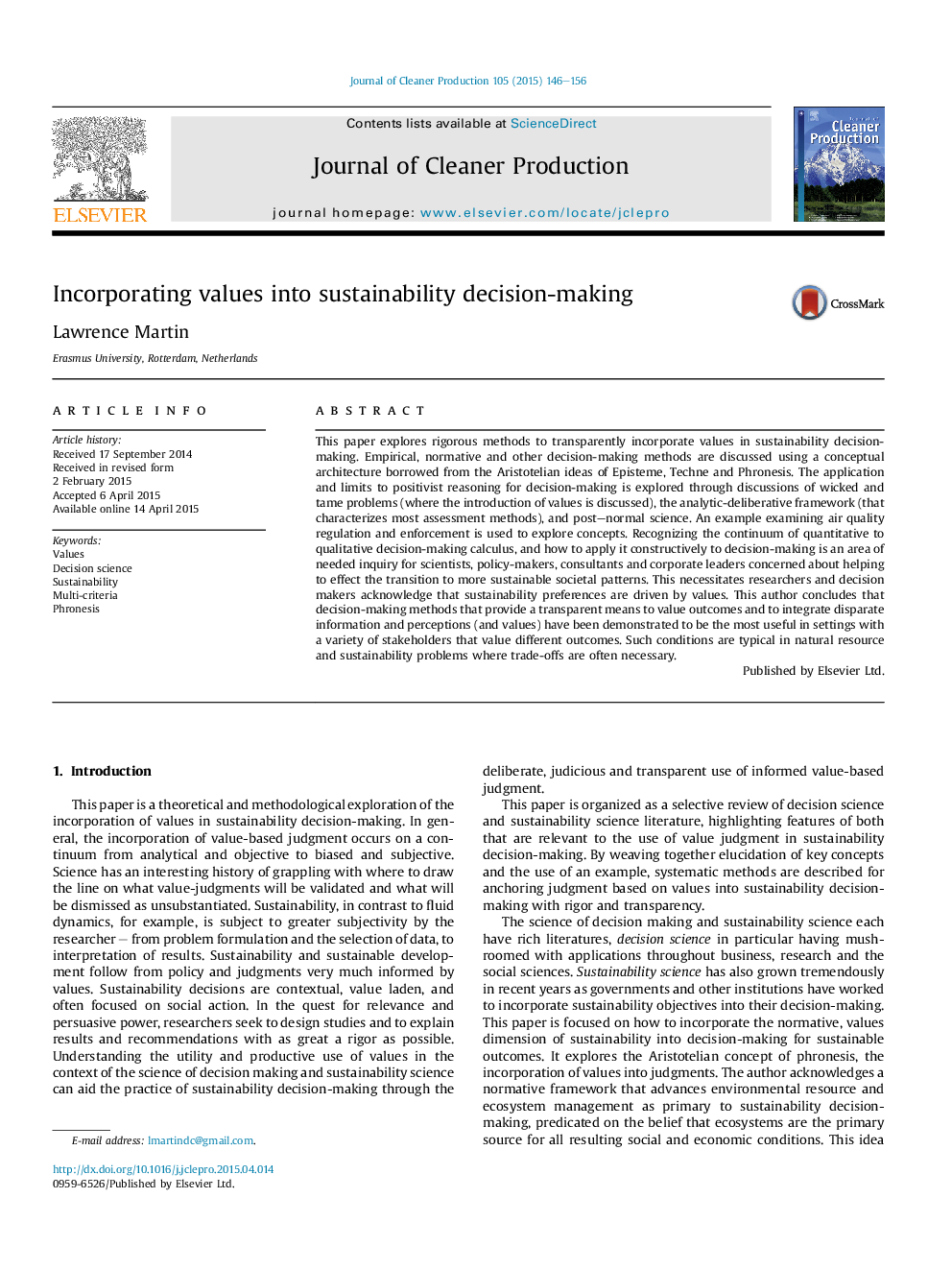| کد مقاله | کد نشریه | سال انتشار | مقاله انگلیسی | نسخه تمام متن |
|---|---|---|---|---|
| 1744534 | 1522141 | 2015 | 11 صفحه PDF | دانلود رایگان |
• Sustainability decisions are contextual, value laden, and focused on social action.
• Sustainability decisions employ phronesis, incorporating value into judgments.
• Sustainability decision science moves past the positivist vs. normative dichotomy.
• Bayesian Networks can join rigorous scientific method with value-based objectives.
• Sustainability decision-making methods must provide a means to value outcomes.
This paper explores rigorous methods to transparently incorporate values in sustainability decision-making. Empirical, normative and other decision-making methods are discussed using a conceptual architecture borrowed from the Aristotelian ideas of Episteme, Techne and Phronesis. The application and limits to positivist reasoning for decision-making is explored through discussions of wicked and tame problems (where the introduction of values is discussed), the analytic-deliberative framework (that characterizes most assessment methods), and post–normal science. An example examining air quality regulation and enforcement is used to explore concepts. Recognizing the continuum of quantitative to qualitative decision-making calculus, and how to apply it constructively to decision-making is an area of needed inquiry for scientists, policy-makers, consultants and corporate leaders concerned about helping to effect the transition to more sustainable societal patterns. This necessitates researchers and decision makers acknowledge that sustainability preferences are driven by values. This author concludes that decision-making methods that provide a transparent means to value outcomes and to integrate disparate information and perceptions (and values) have been demonstrated to be the most useful in settings with a variety of stakeholders that value different outcomes. Such conditions are typical in natural resource and sustainability problems where trade-offs are often necessary.
Journal: Journal of Cleaner Production - Volume 105, 15 October 2015, Pages 146–156
